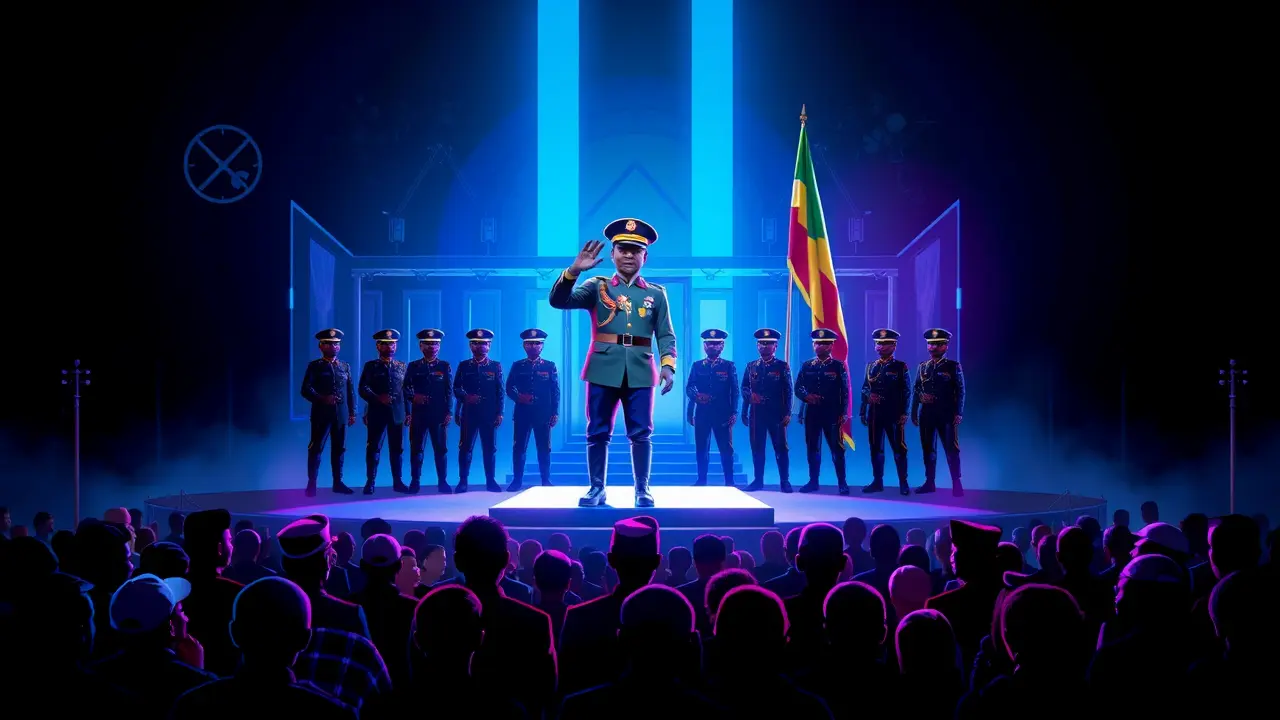Madagascar's new military leader sworn in after seizing power.
The capital of Antananarivo was gripped by a palpable tension this week as Colonel Michael Randrianirina, a figure whose name was scarcely known beyond military circles just days prior, formally swore his oath of office before a carefully assembled crowd, cementing a seizure of power that has sent shockwaves through the Indian Ocean nation and the international community watching with deep concern. This isn't a scene from a political thriller; this is the stark reality in Madagascar, where the delicate threads of constitutional order have been severed by the swift, decisive action of the armed forces.The ceremony itself, steeped in the solemn traditions of the military yet underscored by the raw energy of a coup d'état, marks a critical inflection point for a country with a history of political instability, where military intervention has, tragically, become a recurring theme in its post-colonial narrative. Colonel Randrianirina, now the de facto leader, stood with an air of determined authority, his words echoing in a plaza that has witnessed the rise and fall of numerous regimes, each promising stability and prosperity, yet often delivering cycles of economic hardship and social fragmentation.The immediate trigger for this military takeover appears rooted in a protracted political deadlock and widespread public discontent with the previous administration, accused of corruption and failing to address the crippling poverty that afflicts a significant portion of the population. However, the underlying causes run much deeper, tapping into long-standing ethnic divisions, a struggle for control over the island's immense natural resources, and a profound disillusionment with the democratic process, which many Madagascans feel has been hijacked by a self-serving political elite.The international reaction has been swift and predictably critical, with the African Union, the United Nations, and key Western powers like the United States and France issuing statements condemning the unconstitutional change of government and calling for the immediate restoration of civilian rule and the rule of law. The critical question now is what form Colonel Randrianirina's rule will take; will he follow the path of a transitional leader who guides the nation toward fresh elections, or will he consolidate power, establishing a military junta that suppresses dissent and further isolates Madagascar on the global stage? The economic consequences are already beginning to materialize, with the national currency, the ariary, showing signs of volatility and foreign investors adopting a wait-and-see approach, fearful of the sanctions and aid suspensions that typically follow such events.For the ordinary citizens of Madagascar, who have endured more than their share of political turmoil, this latest upheaval represents yet another period of profound uncertainty, a pause in the already difficult struggle for daily survival, and a test of the nation's resilience. The streets may be calm for now, under the watchful eyes of soldiers, but the silence is deceptive, masking the simmering anxieties of a population caught between the failures of the past and the frightening ambiguity of a military-led future. The world watches and waits, but for the people of Madagascar, the stakes could not be higher, as the island's fate once again hangs in the balance, its future dictated not by ballots, but by the will of a colonel and the force he commands.
JA
Jamie Larson123k2 days ago
interesting to see how this plays out tbh but smh here we go again with another coup
0
